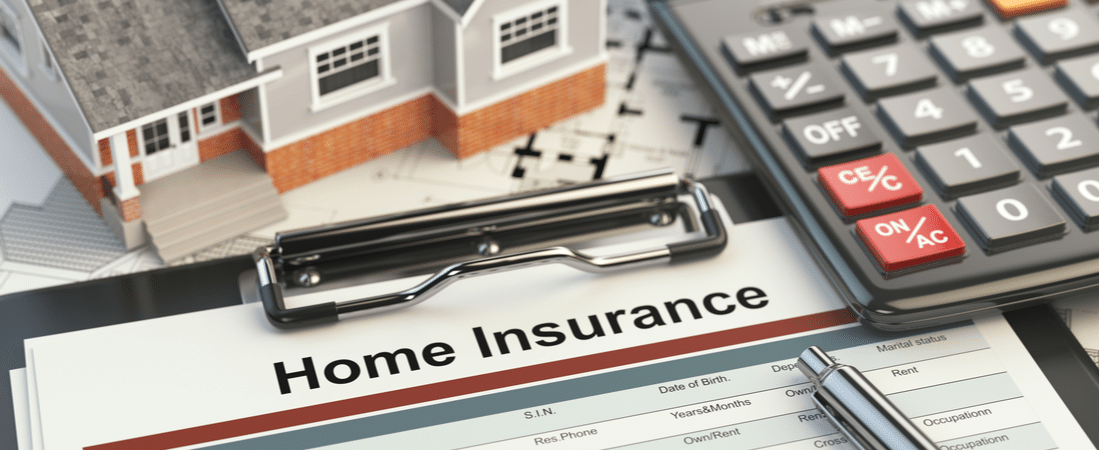What does homeowners insurance cover? What typical policies cover and how to adjust premiums and deductibles to get the right coverage for you.
Homeowners insurance can shield families from devastating losses if they have the right amount of coverage but it turns out many are unclear what that looks like for their home.
Nearly half of homeowners struggled to calculate their insurance policy’s coverage amount in a recent survey by Policygenius, meaning that they could be significantly underinsured or paying for more coverage than they need. Homeowners were also unsure about the basics, like what types of damage are covered in a typical homeowners insurance policy and how premiums and deductibles can be adjusted.
“Home insurance is a protection created to give you peace of mind, but our survey suggests that the process of getting coverage is difficult for many Americans to navigate,” Fabio Faschi, home insurance expert and property and casualty operations manager at Policygenius, said. “When more than a quarter of Americans think home insurance is much more expensive than it actually is, that misperception can make it hard for people to accurately budget for their needs.”
What Does Homeowners Insurance Cover?
There’s a lot of confusion about what a typical homeowners insurance policy actually covers. More than half of homeowners inaccurately assumed floods were covered and a whopping 80 percent thought earthquakes were covered in a typical policy. So what does homeowners insurance really cover?
A typical homeowners insurance policy helps cover your dwelling, your personal property and liability for injuries or damage to someone else’s property.
Dwelling Protection
Dwelling protection covers the structural elements of the home you live in. It includes the house’s foundation, walls, roof and may cover other structures that are attached to the home, like a deck or a garage against certain risks like fire or lightning and falling objects.
Personal Property Protection
Personal property protection covers the items within your home. Items that are damaged or destroyed by a covered risk such as a theft or a fire are repaired or replaced. Many insurers offer extended coverage in this area for more expensive items like jewelry and watches that have values above the typical coverage limit.
Liability Protection
Liability protection covers damages when someone not living with you is injured on your property. For example, if a visitor trips on an exposed nail or falls down the stairs because of a loose step and you’re found responsible for their injuries, liability protection helps cover the resulting legal and medical expenses.
What Types of Risks Are Covered?
In a typical homeowners insurance policy, homeowners are protected from these specific risks:
- Fire or lightning
- Smoke
- Falling objects
- Theft
- Windstorms or hail
- Weight of snow, ice or sleet
- Accidental overflow of water
- Frozen plumbing
A typical homeowners insurance policy does not cover flooding, earthquakes or tropical winds. Homeowners living in areas that are at high risk of experiencing natural disasters that result in significant property damage need to purchase additional coverage to be fully protected.
Homeowners Insurance Coverage Limits, Premiums and Deductibles
More than 25 percent of homeowners felt like they didn’t have enough coverage to replace their home and thought that homeowners insurance costs hundreds, or even thousands, of dollars more than it actually does.
Each homeowners insurance policy has a coverage limit, the maximum amount the policy will pay toward a covered loss. These limits can often be adjusted depending on the value of your home, the items in it and the amount of coverage you want.
Once the coverage limits have been set, your premium and deductible, an amount you need to pay before insurance benefits kick in after a loss, are calculated. Over 40 percent of homeowners were unaware that premiums and deductibles are also adjustable. Homeowners can choose to pay a higher premium and lower deductible each incident, or vice versa, whichever best fits their needs.
Homeowners insurance is meant to give you peace of mind, not confuse you to the point you don’t know what you’re paying for anymore. Review your policy and discuss it with your agent to get a better understanding of what your homeowners insurance covers and how you can make your policy work for you.
More on Topics Related to What Does Homeowners Insurance Cover?
What Type of Homeowners Insurance Policy Should I Get?
How Soon After Buying a House Can You Switch Homeowners Insurance?
When You’re Dropped by Your Homeowners Insurance Company
Homeowners Insurance Tips for First-Time Homebuyers
Will My Homeowners Insurance Cover a Fireworks Claim?







Leave A Comment